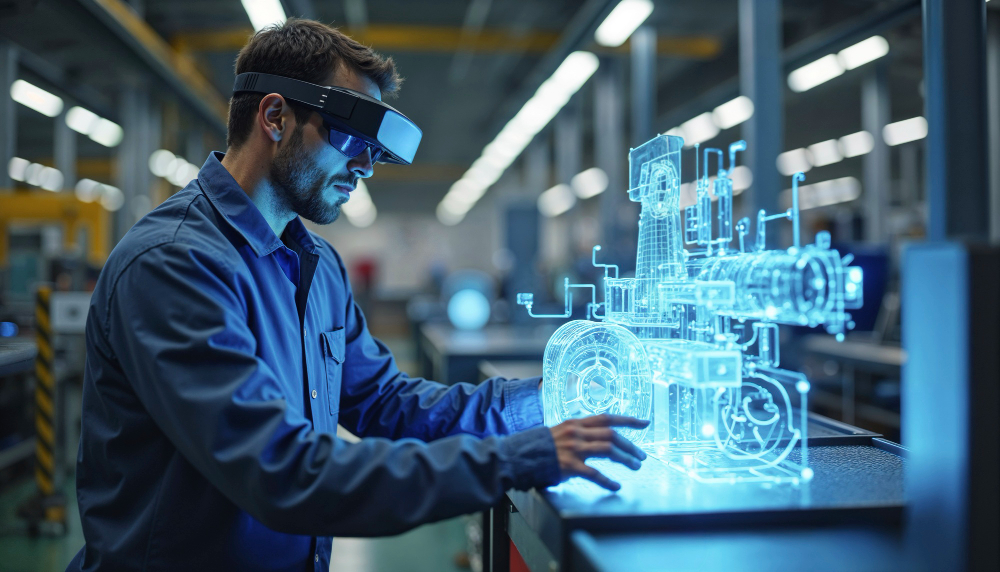Tech manufacturing stands at the forefront of innovation, powering everything from aerospace advancements to next-generation electronics and biotechnology. At the heart of this cutting-edge production lies a critical component: precision. Without meticulous processes, the reliability, safety, and performance of advanced technologies would be impossible to guarantee. Precision isn’t a luxury; it’s a necessity that defines the success of high-tech manufacturing operations.
The High Stakes of High-Tech
High-tech manufacturing involves working with intricate systems, microscopic components, and advanced materials. A single defect or inconsistency can compromise an entire product line or render a complex device nonfunctional. This is especially true in industries such as semiconductors, medical devices, and energy storage, where precision dictates product longevity and user safety.
Manufacturers in these sectors must maintain incredibly tight tolerances and exacting standards. From nano-scale features on a microchip to the chemical purity of materials used in clean energy solutions, the demand for perfection drives every stage of production.
Material Mastery Begins with Precision
One of the foundational elements of high-tech manufacturing is the development and manipulation of materials. Whether it’s developing stronger polymers, temperature-resistant alloys, or biocompatible compounds, the process of creating these materials must be consistently accurate.
A polymer synthesis company plays a critical role in this arena. These companies provide custom polymers with tightly controlled molecular structures, ensuring that every batch meets the exact performance characteristics required by high-tech industries. Their precision in formulation, synthesis, and scalability enables manufacturers to maintain quality and innovate confidently.
Automation and Advanced Metrology
To achieve such levels of accuracy, manufacturers rely heavily on automation and advanced metrology, a science that involves the measurement of physical quantities. Precision robotics are now standard in high-tech production facilities, reducing the margin of human error and increasing reproducibility. Machines that assemble delicate sensors, for example, are programmed to operate within micron-level tolerances.
Equally important is the capability to measure and verify those tolerances. High-resolution imaging, laser scanning, and coordinate measuring machines (CMMs) are used to detect even the slightest deviations. The combination of automation and real-time feedback ensures that precision is built into every layer of the manufacturing process.
The Cost of Imprecision
Precision doesn’t just improve product quality—it reduces waste, minimizes downtime, and prevents costly recalls. When components are made accurately the first time, there is less need for rework or correction. This efficiency leads to faster time-to-market and more reliable performance in the field.
In industries like aerospace, where the failure of a single component can result in catastrophic consequences, the cost of imprecision is not just financial—it’s potentially fatal. Similarly, in medical manufacturing, a lack of precision in producing implants or diagnostic devices can endanger lives and damage reputations irreparably.
Innovation Demands Consistency
As technology progresses, so too does the complexity of the systems being manufactured. Consistent precision is what allows research and development teams to prototype, test, and bring new ideas to life. Without reliable processes, innovation would be slowed by variability and unpredictability.
This consistency is only possible when the entire supply chain, from raw material providers to final assembly lines, is aligned in its pursuit of accuracy. Collaborative partnerships with expert suppliers, such as those offering advanced polymers or nanomaterials, ensure that each component meets the stringent demands of modern design.
Final Thoughts
Precision is not just a buzzword in high-tech manufacturing—it is the very backbone of progress. As industries become more complex and interconnected, the need for flawless processes becomes even more urgent. Whether it’s through the work of a polymer synthesis company or the integration of next-gen automation, precision ensures that technological dreams become tangible, reliable realities.



